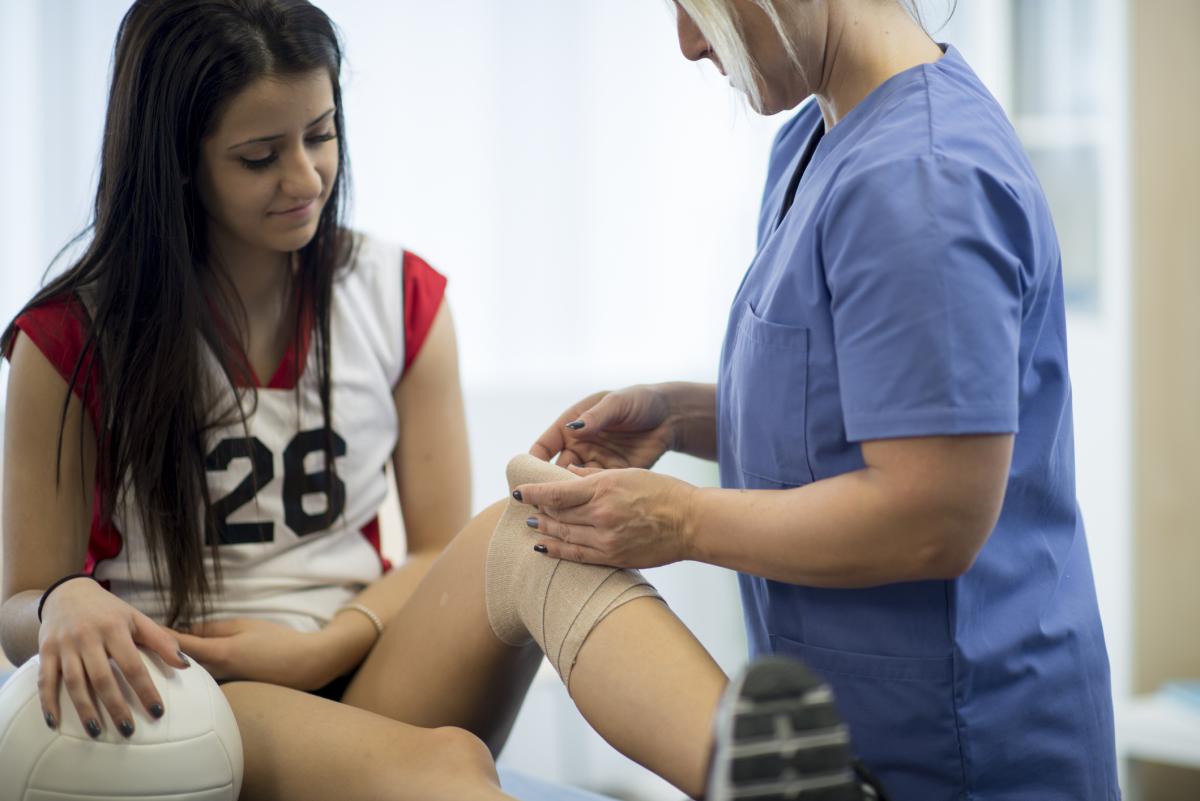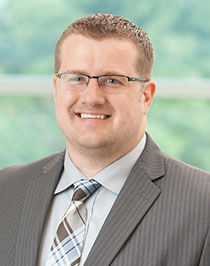Primary care sports medicine physician provides quick point of access for athletic injuries

Nebraska Medicine welcomes a new member to its sports medicine team, Ross Mathiasen, MD, a primary care sports medicine specialist. Dr. Mathiasen works closely with orthopaedic surgeons, surgeons, physical therapists, athletic trainers and other specialists to guarantee the timely and appropriate management of patients’ injuries or medical problems. “As a primary care sports medicine physician, I provide a medical home for athletes and people with active lifestyles to manage medical illnesses and injuries related to sports and exercise,” says Dr. Mathiasen.
Whether it’s an acute injury or an overuse injury, Dr. Mathiasen has expertise in evaluating and treating musculoskeletal injuries common in athletes as well as sports related concussions, assisting in return to play decisions, maximizing athletic performance and performing ultrasound guided injections.
Musculoskeletal problems may include acute injuries such as ankle sprains, joint injuries, dislocations, overuse injuries including stress fractures, tendonitis and osteoarthritis; or knee injuries such as medial collateral ligament (MCL) injuries, tendinopathy and meniscus problems.
“Many musculoskeletal issues do not require surgery,” says Dr. Mathiasen. “Non-operative injuries can be just as debilitating as those requiring surgery. They can take longer to heal and can cause long-term performance issues if they are not treated and healed properly.”

In patients whose injuries require prolonged recovery or in sports-related concussions, Dr. Mathiasen can assist in optimizing recovery and in providing medically-safe return-to-play decisions. “I can evaluate these patients and determine what the complicating factors are that may be prolonging recovery – is there anxiety involved, is the patient not getting enough rest, do they need additional physical or occupational therapy?”
Dr. Mathiasen says he uses a team-based approach to help patients recovery from their injury and to optimize performance. This may include health care providers from areas such as nutrition, speech, occupational and physical therapy, other specialized physicians and athletic trainers depending on their individual needs.
Some sports injuries may require a dedicated treatment plan to help the athlete return to play at optimum performance. This is especially true for concussions which have a specific return-to-play protocol that needs to be followed. “My goal is to get the athlete back to full participation in their sport or activity as soon as possible, as safe as possible, and with optimal performance,” says Dr. Mathiasen.
In addition, Dr. Mathiasen performs several ultrasound guided procedures for various types of injuries. One of these is ultrasound-guided injections for patients who need cortisone injections in their shoulders, hips, tendons or bursae. Traditionally, these procedures are performed as an outpatient procedure with fluoroscopy. Ultrasound-guided injections can be performed in a physician office under the guidance of ultrasound. “One of the benefits of ultrasound guidance is that it’s done in real time with visualization of the needle at all times, allowing confirmation of needle placement and avoidance of critical structures such as nerves and blood vessels,” says Dr. Mathiasen.
Other office-based procedures performed by Dr. Mathiasen includes purcuteneous needle tenotomy, which is used to treat chronic tendon issues such as tendinopathy in certain patients who have failed other treatments. Using ultrasound to visualize the tendons in real time, this procedure uses a needle to make small holes and slices in a tendon causing microtrauma and breaks in the tissue. This causes local inflammation, which increases the circulation to the area and stimulates healing.
From youth to adults, formal activity to week-end warriors, Dr. Mathiasen specializes in working with those involved in all aspects of physical activity. “Managing the health and well-being of active individuals from pre-participation examination to return-to-play is one of the unique aspects of being a primary care sports medicine physician that I enjoy most,” says Dr. Mathiasen.




